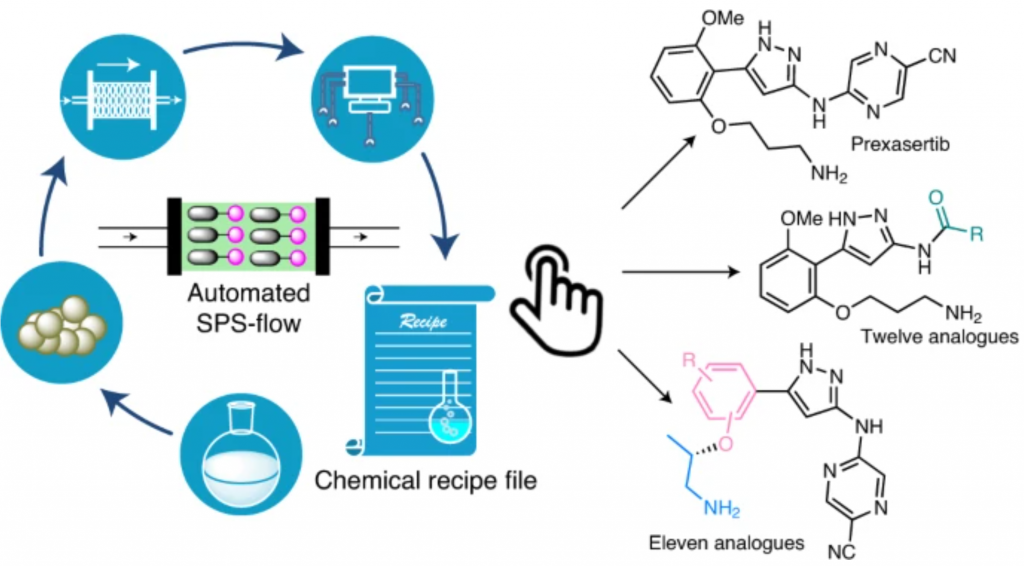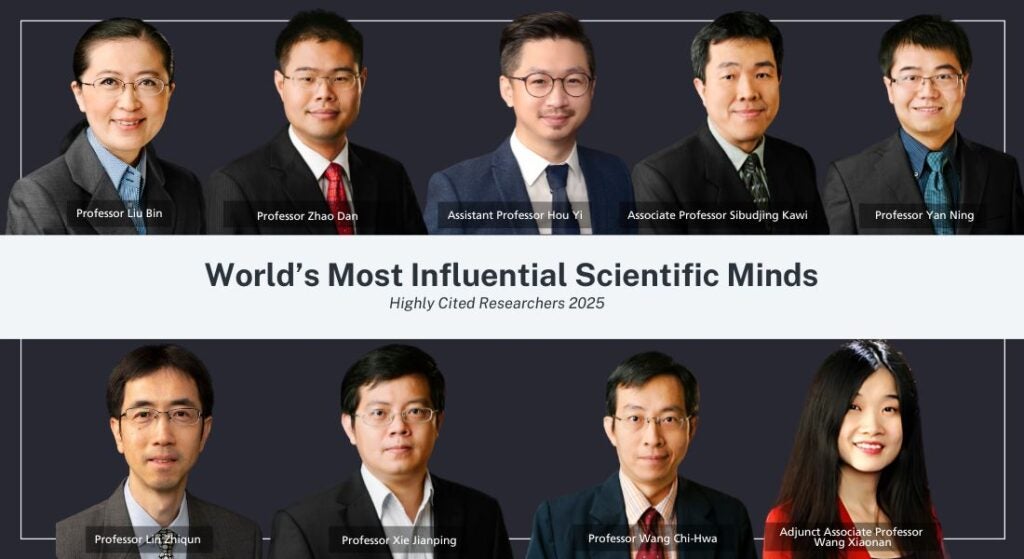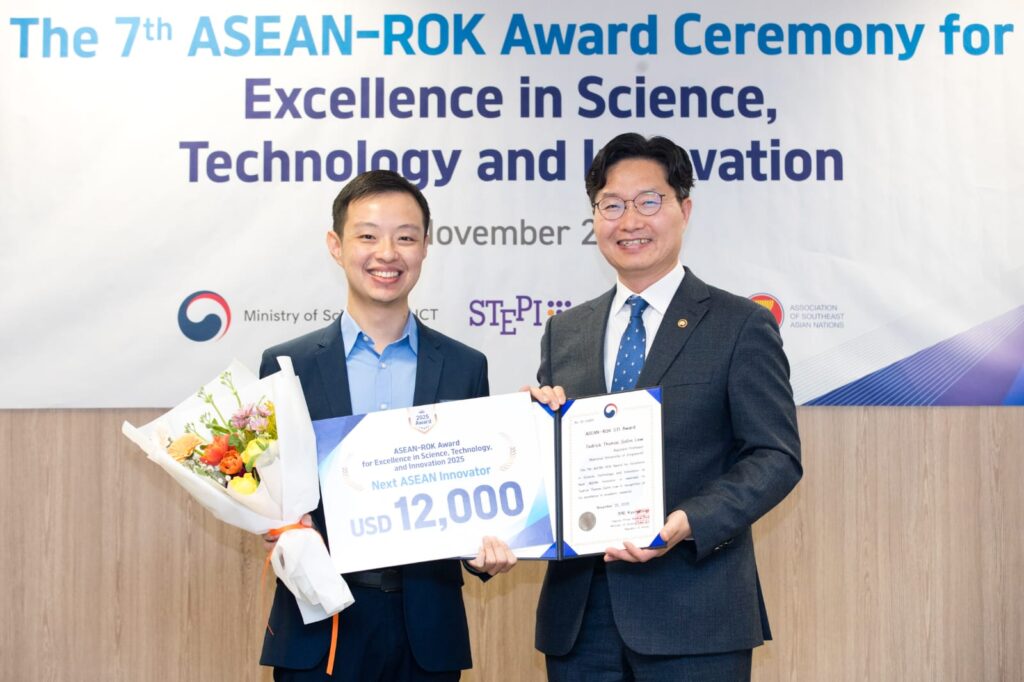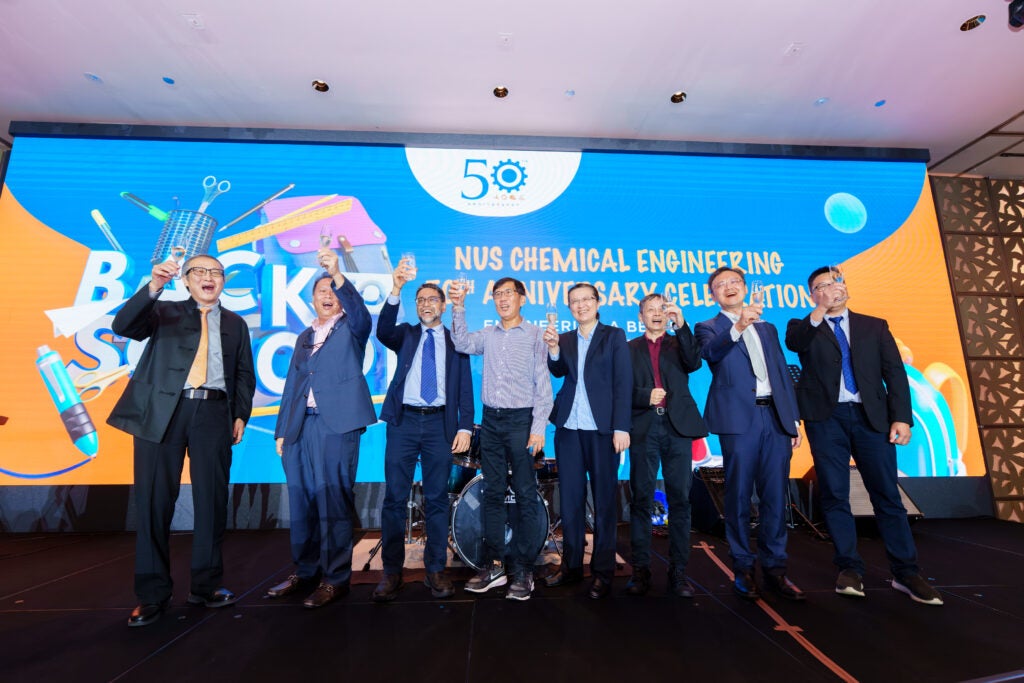June 8, 2021
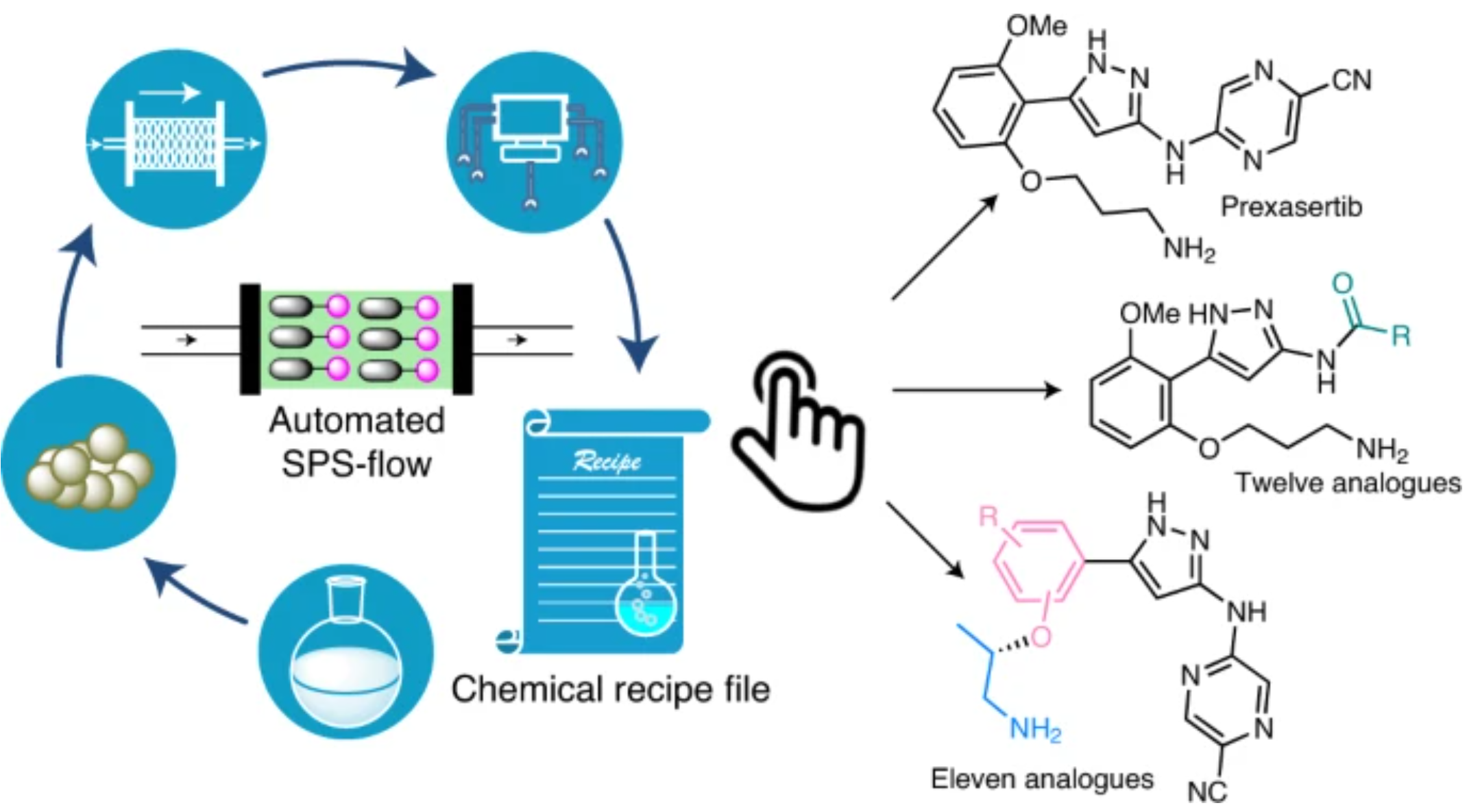
Automated reactors play critical roles in reducing the manufacturing cost of active pharmaceutical ingredients (APIs). They may also enable on demand production of APIs when a supply chain is partially disrupted by a disease outbreak due to their intrinsic programmability. Flow reactors are instrumental in achieving the required degree of automation, but so far have limitations in broader applications, especially when the API synthesis requires different solvents along the synthesis route.
Associate Professor Saif Khan and Assistant Professor Wu Jie from National University of Singapore (NUS) have led the development of a new type of flow reactor, which overcomes the above limitation and can be applied to synthesize a wide spectrum of APIs and their leads. Their new design reversibly locks molecules on solid supports for chemical transformation, and the solid phase chemistry enables easy exchange of solvents. The product drug molecules are unlocked from the solid support at the end of the process, thus regenerating the solid supports and thereby the reactors. Their team has demonstrated fully automated synthesis of a few dozen molecules, and has showed higher productivity and yield for several drug molecules (and their variants) compared with conventional manual operations.
More information on this research breakthrough can be found on the following page of NUS News:
The original research article was published in Nature Chemistry:
https://www.nature.com/articles/s41557-021-00662-w
Prof. Khan is a faculty member at the Department of Chemical and Biomolecular Engineering, NUS. Their research group focuses on chemical reaction and separation in flow system, driven by research challenges faced by the pharmaceutical industry. More information of their group can be found through the following page:
https://khanlabnus.wordpress.com/


